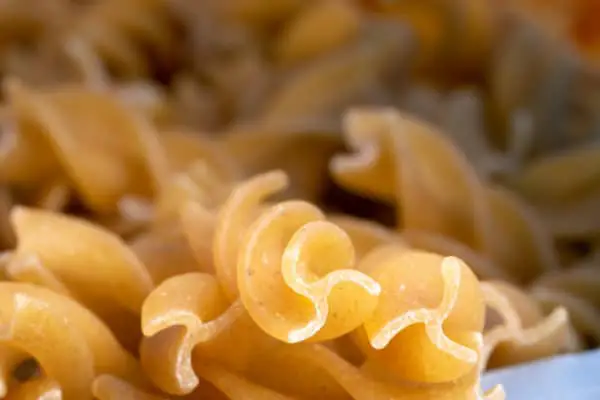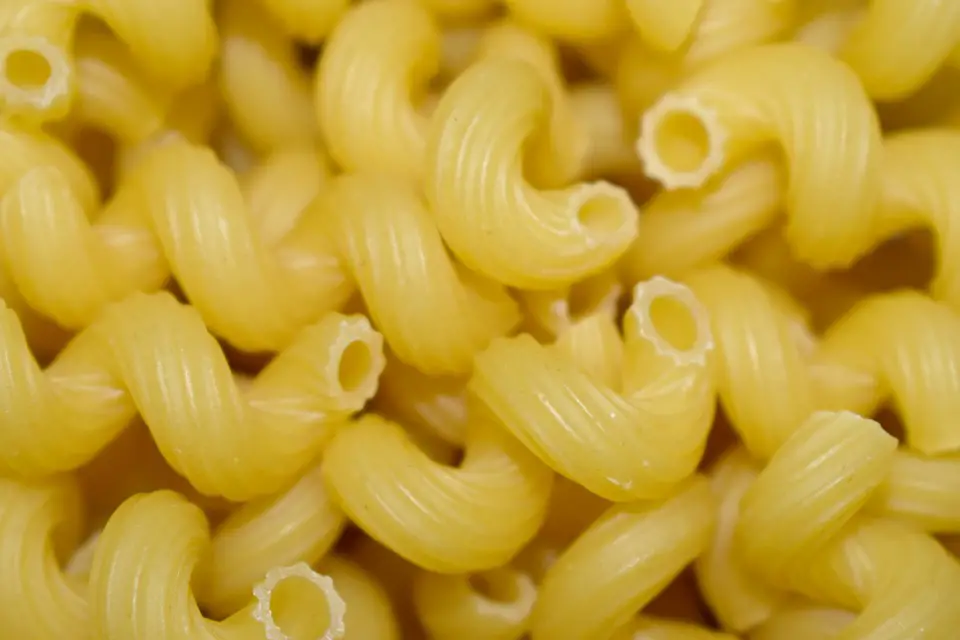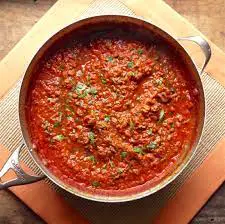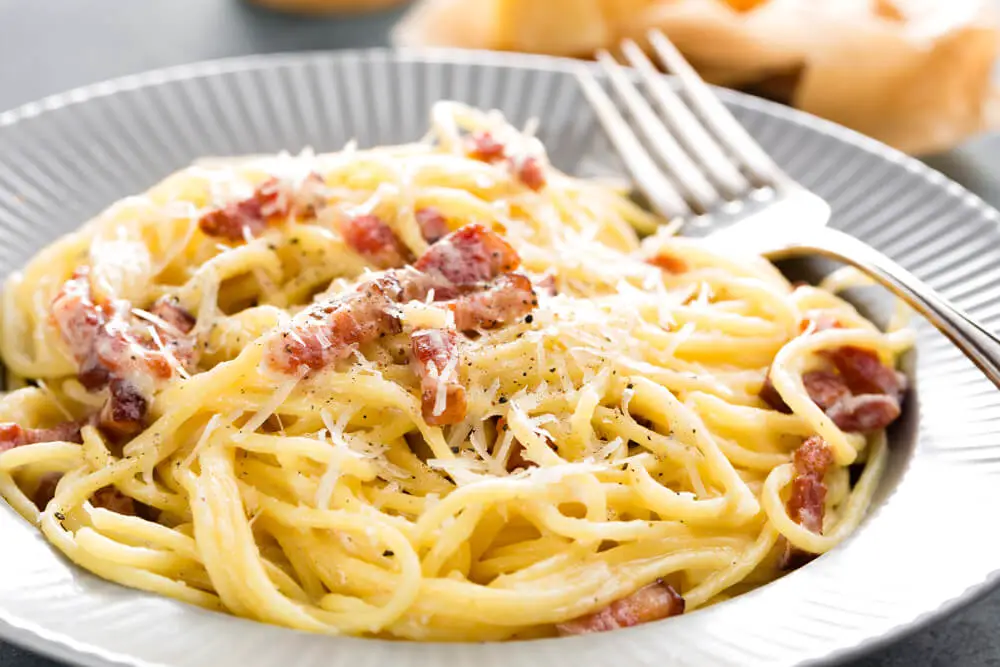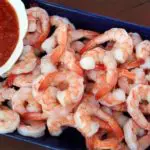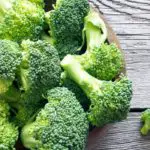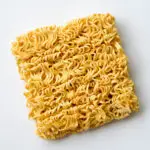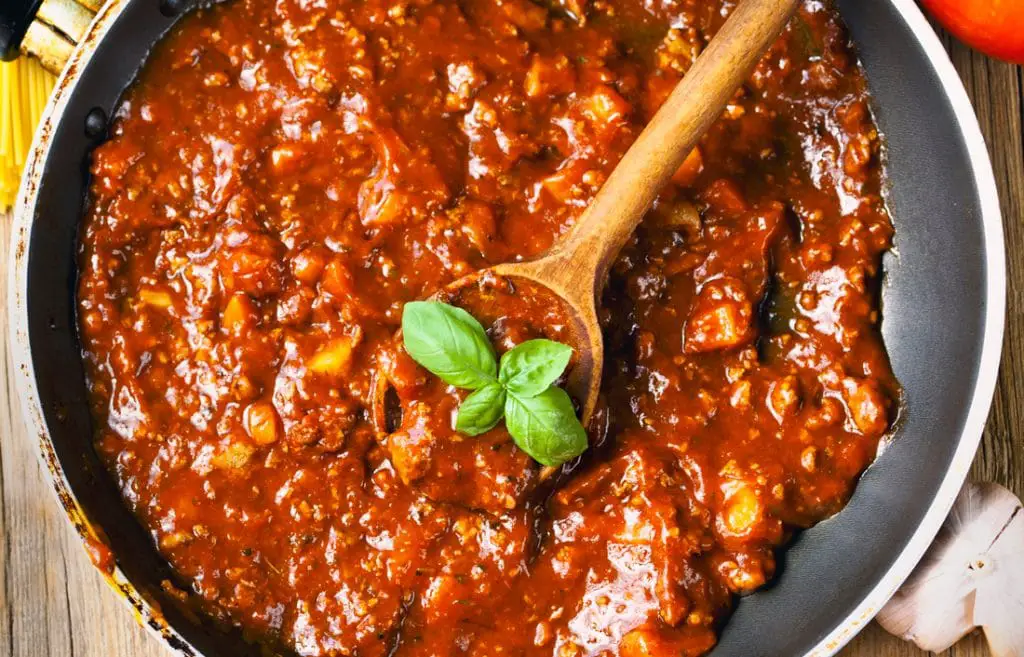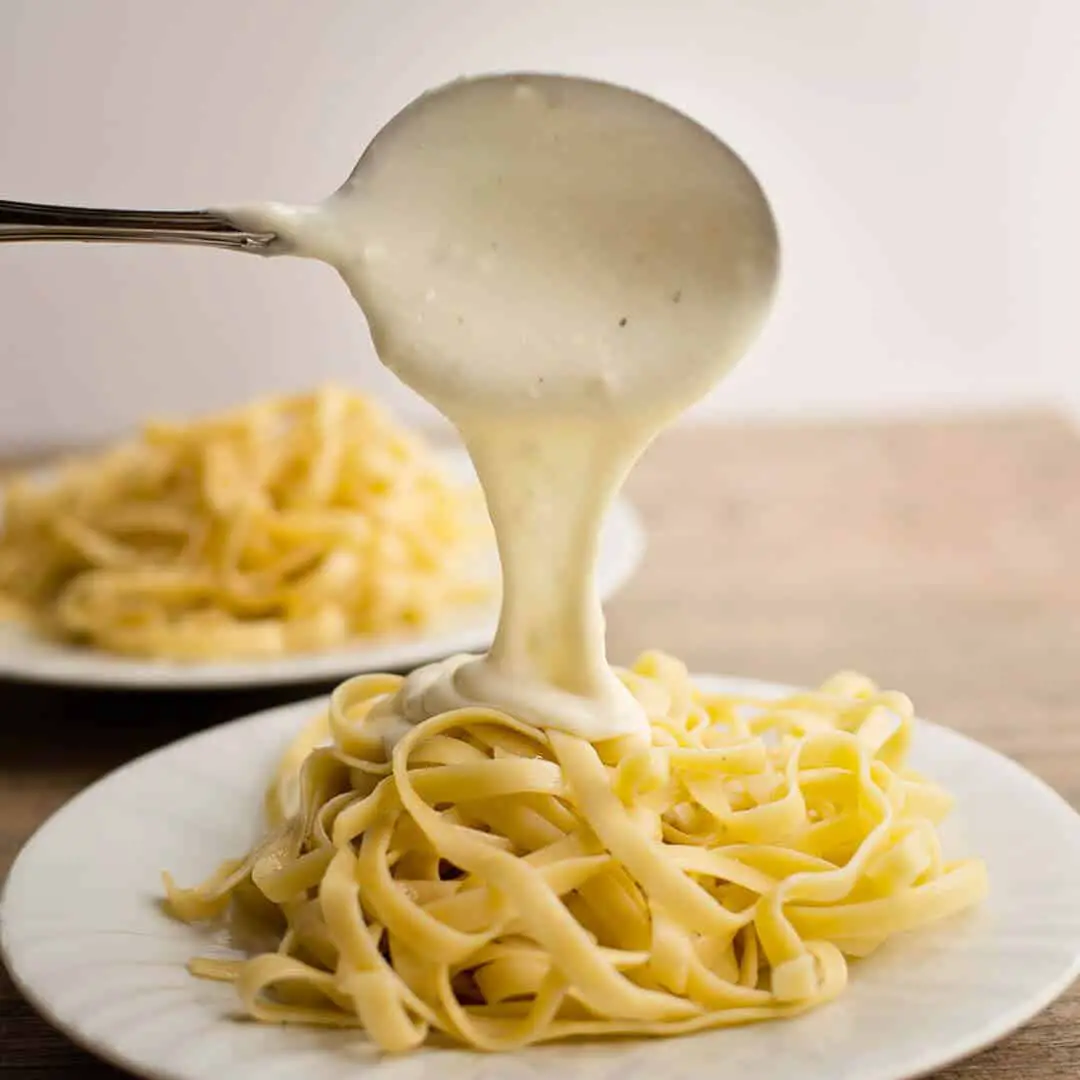Can You Eat Raw Pasta?
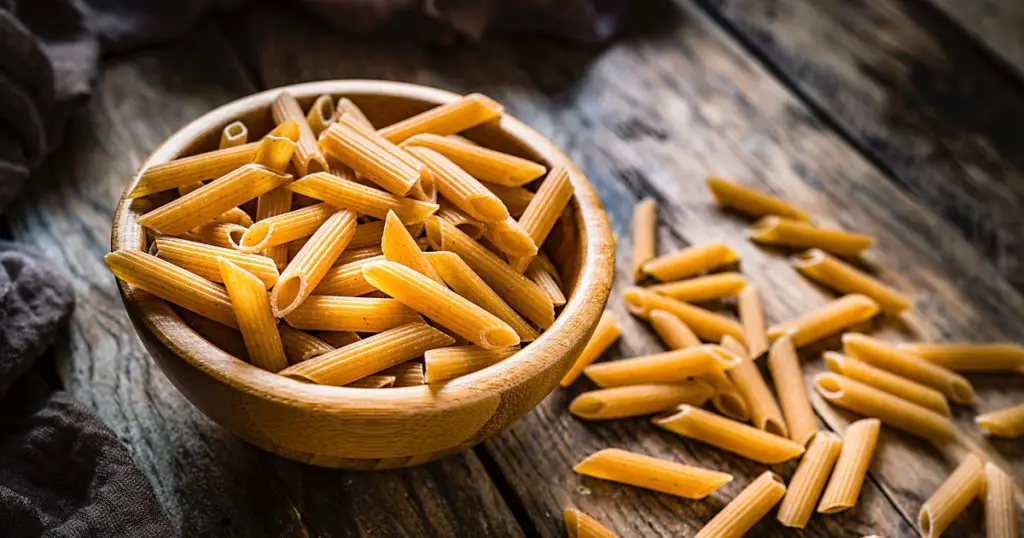
Although it might seem weird, a few of us might have had a taste of undercooked or uncooked pasta. In the event that we haven’t, someone else known to us might have done it While pasta is tasty and safe when cooked, it is a good question to ask: Can you eat raw pasta?
In simple terms, raw pasta is not good for your health. If you’re anxious, it is rare that raw pasta produces any serious diseases. But is it healthy? We’ve studied food safety standards to answer this question for you.
It’s technically possible to consume raw pasta, but raw pasta isn’t considered a healthy food. While small quantities of pasta and noodles that are raw will not cause health problems, greater amounts could cause problems. If you consume huge quantities of pasta that is raw or consume frequently, you could be at risk of food-related problems because of the pasta, inflammation, illness, and damage to the intestines. Consuming pasta raw is not advised; ensure you cook it properly!
Now that you know, raw pasta isn’t healthy for your health and could make you sick. We suggest you keep reading to understand why raw pasta isn’t a good thing. We’ll also provide more specifics about the health risks it could cause as well as answer any other questions you might have about the health risks associated with eating dried noodles.
Risks of Eating Raw Pasta
If you consume pasta in its raw form it is possible to suffer from dietary issues. Raw pasta is loaded with a lot of anti-nutrients. The two most important are phytates and lectins. Both can harm your intestinal lining, interfere with enzymes that are present in your body and can cause inflammation.
Alongside the harm they can cause in the body, phytate could also trigger various other issues. In your body phytates are able to bind with minerals like iron and calcium which makes them difficult to be absorbed by your body. Ingestion of pasta in a regular fashion will eventually make you weak in minerals and sick because of it.
Can You Get Sick From Eating Uncooked Pasta?
Raw pasta isn’t a good thing for you and could cause illness due to mineral deficiency. However, certain types of pasta have higher dangers for other diseases. Properly stored pasta could be a carrier of bacterial infections that can cause sickness.
It Can Cause Health Issues
Pasta noodles made with eggs as their ingredient are more likely of carrying salmonella. If you eat egg noodles in raw form the risk is that you’ll be getting salmonella-related bacteria. The risk is minimal. However, drying can eliminate the salmonella bacteria before you’ve consumed the noodles.
Pasta that has come into contact with surfaces that carry bacteria could also cause you to get sick. Like all foods, raw pasta may be contaminated by bacteria that are found on counters shelves, counters, or any other surface that it comes into contact with. Cooking pasta usually removes the bacteria, however eating raw pasta will put them into your system.
Raw pasta is difficult to digest because the starches that are present aren’t broken into pieces. The pasta is able to pass through your digestive tract and isn’t taken care of. It is possible to experience stomach pains due to the more difficult digestion. Once the pasta is raw and reaches the colon, it could cause flatulence, pain, and cramps.
Can You Eat Fresh Pasta Raw?
Fresh pasta cooked in the raw could be like eating raw cake dough or cookie batter. Raw pasta is in essence dough. It is the US Centers for Disease Control and Prevention (CDC) have warned against eating raw dough. Raw flour is typically not treated to eliminate or kill any bacteria.
The eggs and flour (if there are eggs) could contain bacteria such as E. coli and Salmonella. Furthermore, the flour may be contaminated at any point along the manufacturing process.
Eating Dried Raw Pasta
Also, you shouldn’t consume dried pasta raw because of various reasons.
Bacterial Infection
Consuming dried pasta in raw form doesn’t present the same risk of bacterial infections as fresh pasta. The amount of moisture in dried pasta is low. Bacteria such as E. coli and Salmonella have virtually no chance of survival.
If the pasta was exposed to moisture or moisture, it may carry bacteria. For instance, leftover pasta might not have been stored properly. This can cause moisture to enter. Thus, the risk of contracting a bacterial infection after eating raw pasta that has been dried is not high, but it isn’t completely zero.
Can You Eat Raw Hard Pasta?
Raw, hard-dried pasta is hard. The texture is tough and can cause tooth damage. In excess, eating raw pasta could eventually cause damage to your teeth, such as enamel. If you consume dried raw pasta and you don’t chew it properly you could take it in pieces that have sharp edges and sharp points. These could puncture you at any point within the digestive system.
Inadequate Nutrition
Lectins are proteins that can be found in a variety of foods, particularly grains and legumes. This is why lectins can be present in pasta. There are various kinds of lectins. Certain types of lectins can bind to the digestive system, causing problems.
A few people have stomach pain, vomiting and diarrhea. Some people even report auto-immune problems. The more mild side effects of eating lectins can cause gas and bloating. Since lectins are able to bind to the digestive tract, they could hinder mineral absorption. The minerals lectins may block include calcium iron, iron, phosphorus and zinc.
If you have experienced negative results from eating lectins you may experience similar effects after eating raw pasta. But the good news is that lectins can be eliminated through proper cooking.
The phytic acid or phytates is a different chemical that can be found on grains. Similar to lectins, they connect to the wall in our stomach. Therefore, they may affect mineral absorption such as zinc and iron. But, the negative effects are only evident when you consume a lot of phytates.
There are studies showing that phytates are linked to health benefits. Certain studies show phytates can lower cholesterol levels and less blood sugar fluctuations.
Similar to eating lectins you may experience similar reactions by eating raw pasta. But, you can be able to avoid the negative effects of raw pasta by cooking your pasta.
How To Avoid Undercooked Pasta
Making sure that food is cooked thoroughly is the most effective way to kill any bacteria present in the food. If you are cooking pasta, be sure to boil it in a proper manner. Aldente pasta is completely safe as the noodles are heated enough to kill bacteria that reside inside them and on the outside.
Pasta is usually good for up to a year after the date it expires. Be sure to properly store dried pasta. Store it in airtight containers free of humidity and avoid getting too cold or hot. This will help prevent the growth of mold and bacteria on the pasta as well as in it.
Is Raw Pasta Fattening?
Raw pasta contains tons of starch and is often considered to be a macronutrient that is fattening. Cooking starches helps them to digest. The longer they cook, the more readily available they are. Cooking pasta too long can cause blood sugar spikes and could be dangerous in the end due to the amount of starch that is readily available for absorption.
Raw pasta however is extremely harsh on the digestive system. The starches in pasta aren’t disintegrated during the cooking process, and they are difficult to digest. In essence, you take in less nutrients from pasta that is cooked and much of it flows through your system and isn’t digested. Because of this raw pasta isn’t weight-loss. However, you should be aware of the risks of illness we spoke over before that eating pasta is a healthy decision.
Can You Get Food Poisoning From Dried Pasta?
When eaten raw, isn’t the chance of getting food poisoning. The amount of moisture in the pasta is essentially negligible and does not allow bacteria to develop. If you let it be moist or wet the noodles could develop bacteria that can lead to food poisoning.
Following cooking, cooked pasta may be a significant food poisoning danger. Even if you began using dry pasta, cooking pasta permits the expansion of bacteria the moment it begins cooling. Any food cooked and placed out to cool quickly could germinate the cold-resistant and heat-resistant bacteria. Cooking or heating the food will not remove the bacteria, thereby so eating pasta leftover from the refrigerator is a risk.
Is Fresh Pasta Better Than Dried Pasta?
It’s possible to think that because it’s freshly prepared, it’s superior to dried pasta. The difference between two is that they’re totally different types of pasta that are made using different ingredients. The result is two types of pastas with distinct tastes and textures. Dry and fresh pasta are equally delicious in various dishes, cooked differently, and need different storage.
Fresh Pasta
Fresh pasta is usually composed of eggs, flour and water. It is quicker to prepare and typically more flexible when compared to dried pasta. In contrast to dried pasta fresh pasta is cooked until it’s soft and silky to the feel. It is delicious with buttery and light sauces, rather than more heavy tomato-based ones.
Fresh pasta should be kept in your refrigerator in order to maintain its freshness. It is also important to use it earlier than dried pasta because it’s not as durable. If you opt to buy freshly made pasta rather than making it yourself be aware that it’s more expensive than dried pasta due to the ingredients used and its spoilage time.
Dried Pasta
Dried pasta can be made of flour, water and salt. It is rougher and is stronger than fresh pasta which allows it to withstand heavier sauces. If you are able to maintain it as dry, the pasta will keep from spoiling when stored at room temperature for a long time.
The ideal cooking temperature for dried pasta is to cook it until al dente, nearly undercooked. This makes the pasta more firm and adds a bite while providing it with the strength required for heavy sauces. A lot of the popular pasta shapes we were taught to love can’t be created using fresh pasta, and have their origins in dried pasta.
Related Questions
Are there worms that can be contracted from taking raw pasta?
It is not likely that raw pasta contains parasites that are similar to worms. The parasites that we’re worried about feed on other species. This means that they can’t survive on pasta made from plants. Raw meats are typically the hosts of parasites such as roundworms and tapeworms.
What is the term used to describe uncooked pasta?
The term used to describe the pasta that is cooked slightly can be described as “molto al dente”. “Al dente” comes from an Italian expression that means “to the tooth.” Molto al dente is pleasantly chewy, which makes the experience more pleasant. If you chew on your pasta you’ll notice the texture of chalky and gritty towards the middle.
Wrapping up
Fresh and dried pasta can be used in the kitchen. dried pasta is easier to prepare and is more tolerant to tomato sauces, whereas fresh pasta is more suitable for certain dishes. Both are not superior over one another in terms of health benefits, but it’s usually an individual preference.
So, can you eat raw pasta and noodles? A small amount of pasta can have minimal negative effects on your body. In most cases, it is unlikely that you will be aware of any adverse side effects.
If you consume a large amount of pasta that is raw or eat it often you could fall ill with cramps, some of which can cause. It’s recommended to stay clear of eating pasta that is not cooked and ensure that you cook it correctly to eliminate any bacteria that may be present on the noodles.
